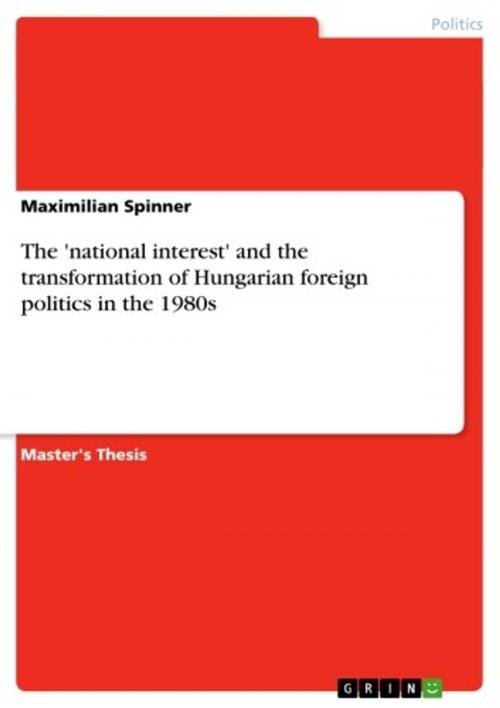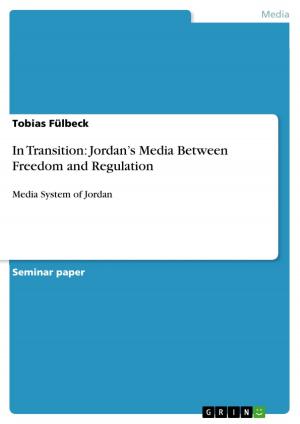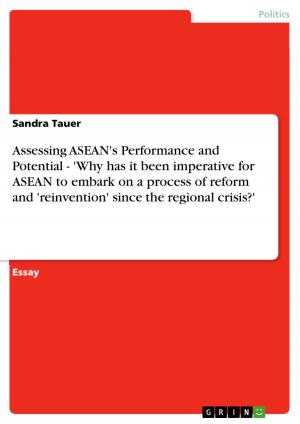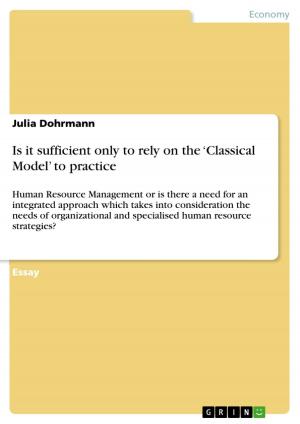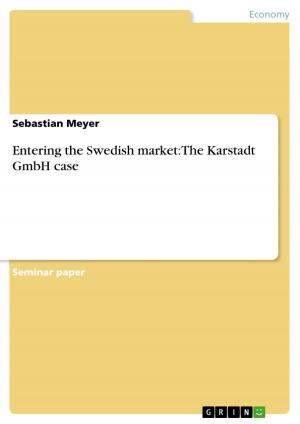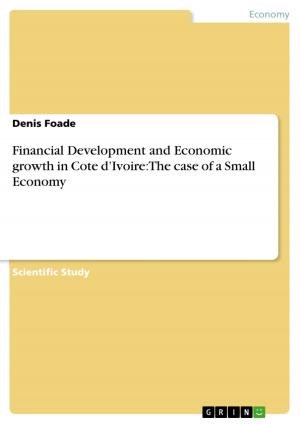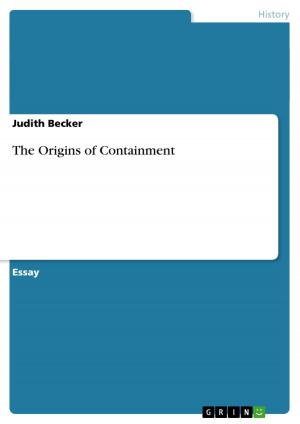The 'national interest' and the transformation of Hungarian foreign politics in the 1980s
Nonfiction, Social & Cultural Studies, Political Science, International, International Relations| Author: | Maximilian Spinner | ISBN: | 9783638189958 |
| Publisher: | GRIN Publishing | Publication: | May 6, 2003 |
| Imprint: | GRIN Publishing | Language: | English |
| Author: | Maximilian Spinner |
| ISBN: | 9783638189958 |
| Publisher: | GRIN Publishing |
| Publication: | May 6, 2003 |
| Imprint: | GRIN Publishing |
| Language: | English |
Master's Thesis from the year 2002 in the subject Politics - International Politics - Region: Eastern Europe, grade: 1 (A), University of Birmingham (Centre for Russian and East European Studies), course: East European Politics, 103 entries in the bibliography, language: English, abstract: The reformulation of the national interest in Hungarian foreign politics in the mid- and late 1980s paved the way for a domestic reform process which lead to the peaceful transition to democracy. Hungary's democratisation cannot be understood without a reference to the preceding reformulation of its foreign policy, e.g. with regard to its neighbour Romania with a large Hungarian minority. In the economic domain this process meant an opening up for Western influence and an increasing losening of Hungary's integration with COMECON and the Soviet bloc. Contemporary sources from Hungary, the Soviet Union and the West are extensively used to substantiate the findings.
Master's Thesis from the year 2002 in the subject Politics - International Politics - Region: Eastern Europe, grade: 1 (A), University of Birmingham (Centre for Russian and East European Studies), course: East European Politics, 103 entries in the bibliography, language: English, abstract: The reformulation of the national interest in Hungarian foreign politics in the mid- and late 1980s paved the way for a domestic reform process which lead to the peaceful transition to democracy. Hungary's democratisation cannot be understood without a reference to the preceding reformulation of its foreign policy, e.g. with regard to its neighbour Romania with a large Hungarian minority. In the economic domain this process meant an opening up for Western influence and an increasing losening of Hungary's integration with COMECON and the Soviet bloc. Contemporary sources from Hungary, the Soviet Union and the West are extensively used to substantiate the findings.
